Government waters down export aid plan
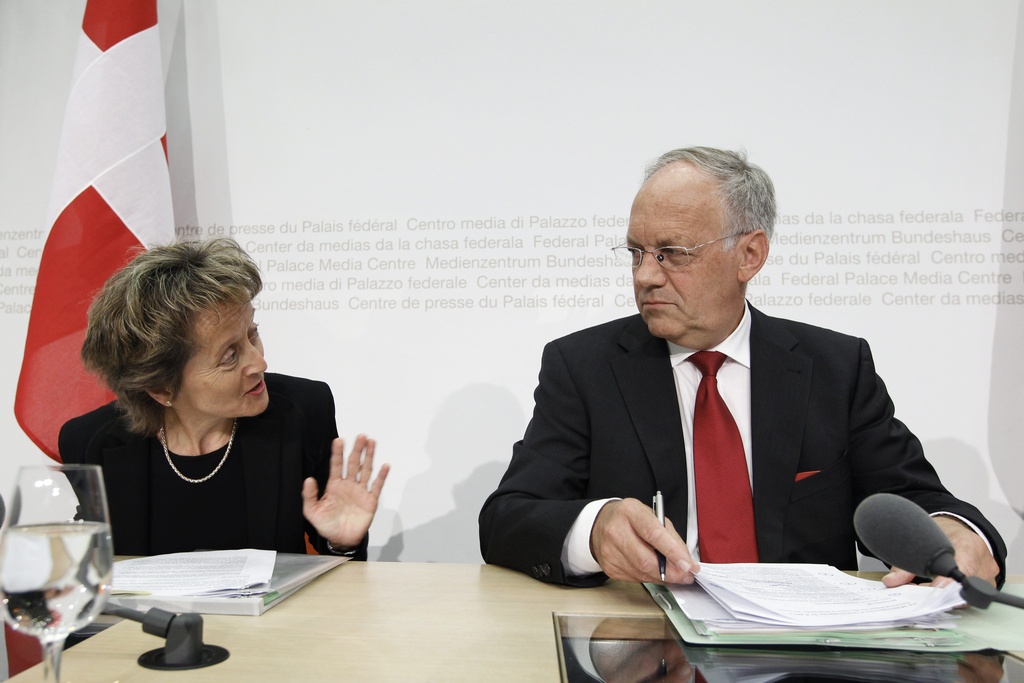
The government has more than halved its proposed measures to prop up the export and tourism industries with a new SFr870 million ($1.1 billion) emergency cash plan.
The original SFr2 billion package, announced earlier this month, met a storm of protest from political and business groups. Critics had complained that the deal could be used to prop up failing businesses.
The revised bailout allocates SFr500 million to protecting jobs across all industry sectors. The lion’s share of the cash will be used to extend the existing shortened working hours scheme with the state subsidising lost wages.
Money will be used to bolster a state technology and innovation programme that helps translate ideas into successful business plans. The country’s two Federal Institutes of Technology will also receive extra funding.
Some SFr100 million has been assigned to a fund that can extend emergency loans to the hotel industry. Public transport projects and a specific agricultural exports will also get a smaller cash boost.
The watered-down measures will be presented to parliament for approval in September, but received mixed reviews from the business community.
“More focused measures”
The bailout plan was conceived to counter the negative effects of the rapidly strengthening franc. Swiss exports have become more expensive in key markets while tourists have been put off from coming to Switzerland by rising prices.
But the original idea of Economics Minister Johann Schneider-Ammann to pump SFr2 billion into the economy was denounced by politicians and business leaders who feared it could be used to distort competition by bailing out specific sectors.
The Swiss Small and Medium Sized Enterprises Federation, which had been a vocal critic of the original SFr2 billion bail-out, welcomed the new plan.
The SME Federation said in a statement that it welcomed the new scheme that “ends the intention of directly subsidising enterprises”.
“The new, more focused measures will better increase the attractiveness of Switzerland as a business location and promote research and innovation,” the statement went on.
Reforms wanted
However, the federation called on parliament to implement further measures to help the business community – foremost, a reform of the complicated value added tax regime.
GastroSuisse, the umbrella group for the Swiss catering trade, said it was “disappointed” with the measures that did not heed requests to lower VAT bills for sections of the tourism industry.
“The cabinet’s resolution shows that it does not recognise the seriousness of the situation,” said GastroSuisse President Klaus Künzli in a statement.
Political reaction was a mixture of caution and criticism, with only support for the tourism sector receiving a general thumbs-up.
The centre-right Radical Party and rightwing Swiss People’s Party said they would have liked to see the rapid implementation of corporate tax reforms and the lowering of energy prices and taxes.
The Radicals criticised the lack of targeted and short-term solutions.
The centre-right Christian Democratic Party also had doubts. While it welcomed the SFr100 million for tourism and support for short-time work, it wanted to see the government strengthen the competition commission so it could get fairer prices for imports.
The centre-left Social Democratic Party called for more meaningful measures. It said it was pleased to see long-term investments but believed these weren’t targeted enough. It also called for further monetary interventions by the Swiss National Bank (SNB).
Overvalued franc
The SNB has acted in recent weeks to rein in the remorseless strengthening of the franc against the euro and the dollar.
The central bank pumped billions of francs into the markets to dilute the national currency and threatened to peg the franc to the euro or introduce negative interest rates.
The effect has been to cool down the franc, which was approaching parity with the euro and SFr0.70 against the dollar. The franc has retracted to around SFr1.16 against the euro and SFr0.80 against the greenback.
But Schneider-Ammann still described the franc as “massively overvalued” on Wednesday, saying the situation was still “difficult” for exporters that have suffered pressure on margins.
“We’ll have to keep living with the strong franc for some time,” he warned, adding that only the SNB had the power to influence exchange rates.
The Swiss franc is a so-called “safe haven” currency, which means that investors and speculators buy it when other currencies, including the euro and the dollar, are under pressure.
The franc has gained about 25 per cent in value against the euro and the dollar over the past four years.
The Swiss National Bank has emphasised that it does not pursue an exchange rate target, but consistently bases its monetary policy on its legal mandate.
This mandate stipulates that “the SNB is required to ensure price stability, while taking due account of economic developments”.
Starting in March 2009 the SNB intervened in currency markets. But after pumping in 15 per cent of GDP in May 2010 to little effect as the Swiss franc surged during the first round of the Greek debt crisis, it dropped them in June 2010.
These forays led it to a loss of SFr21 billion last year, its biggest ever, and its chairman, Philipp Hildebrand, has faced calls to resign.

In compliance with the JTI standards
More: SWI swissinfo.ch certified by the Journalism Trust Initiative

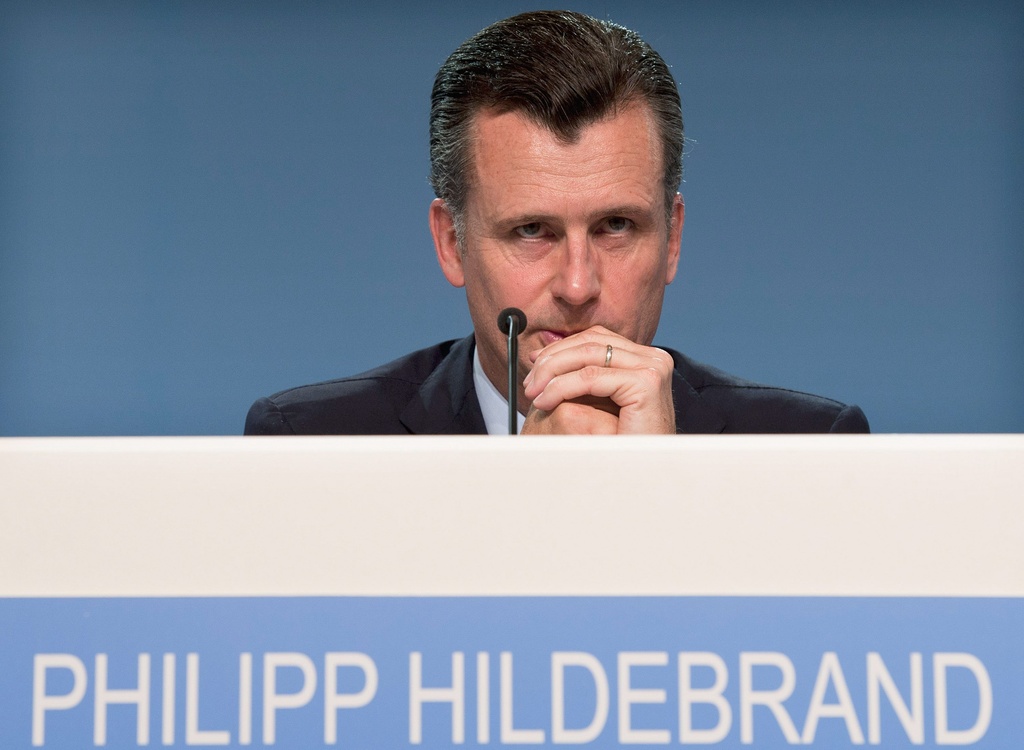
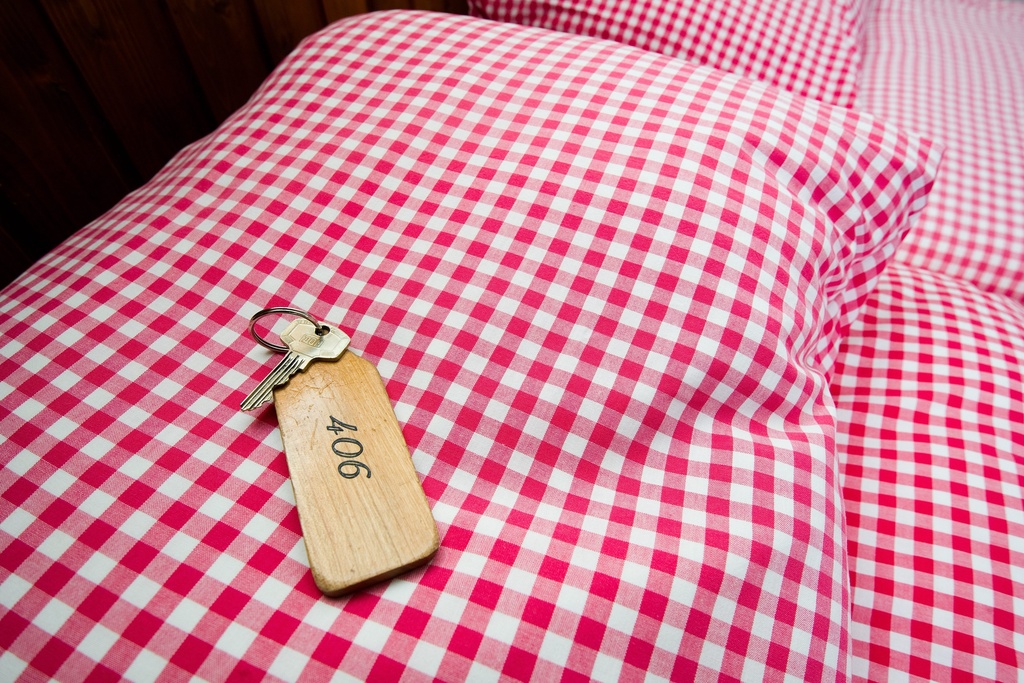
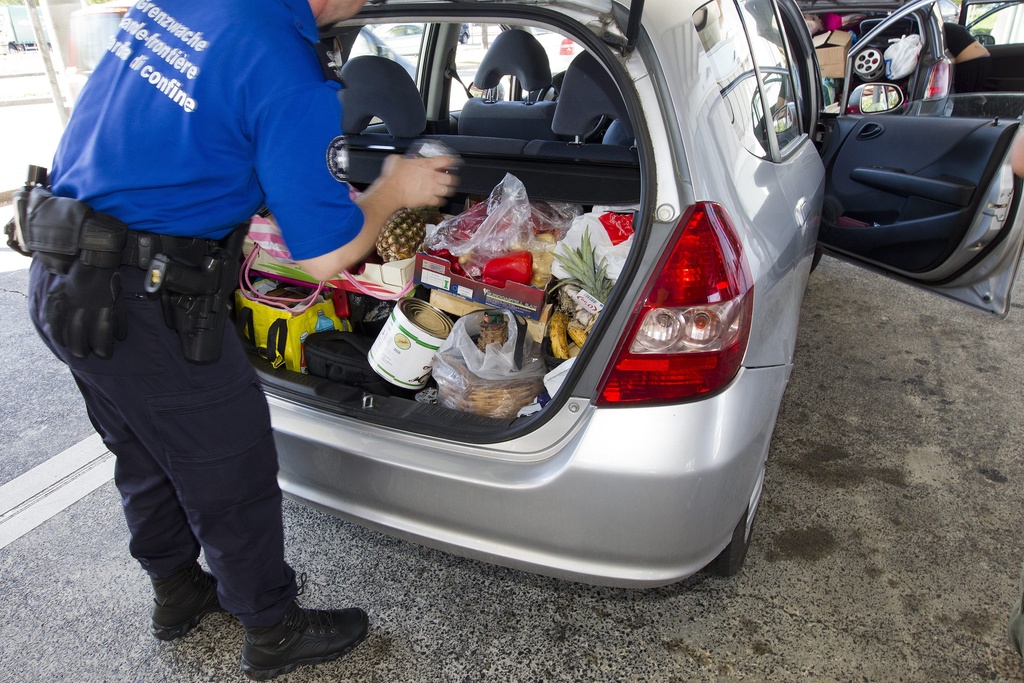
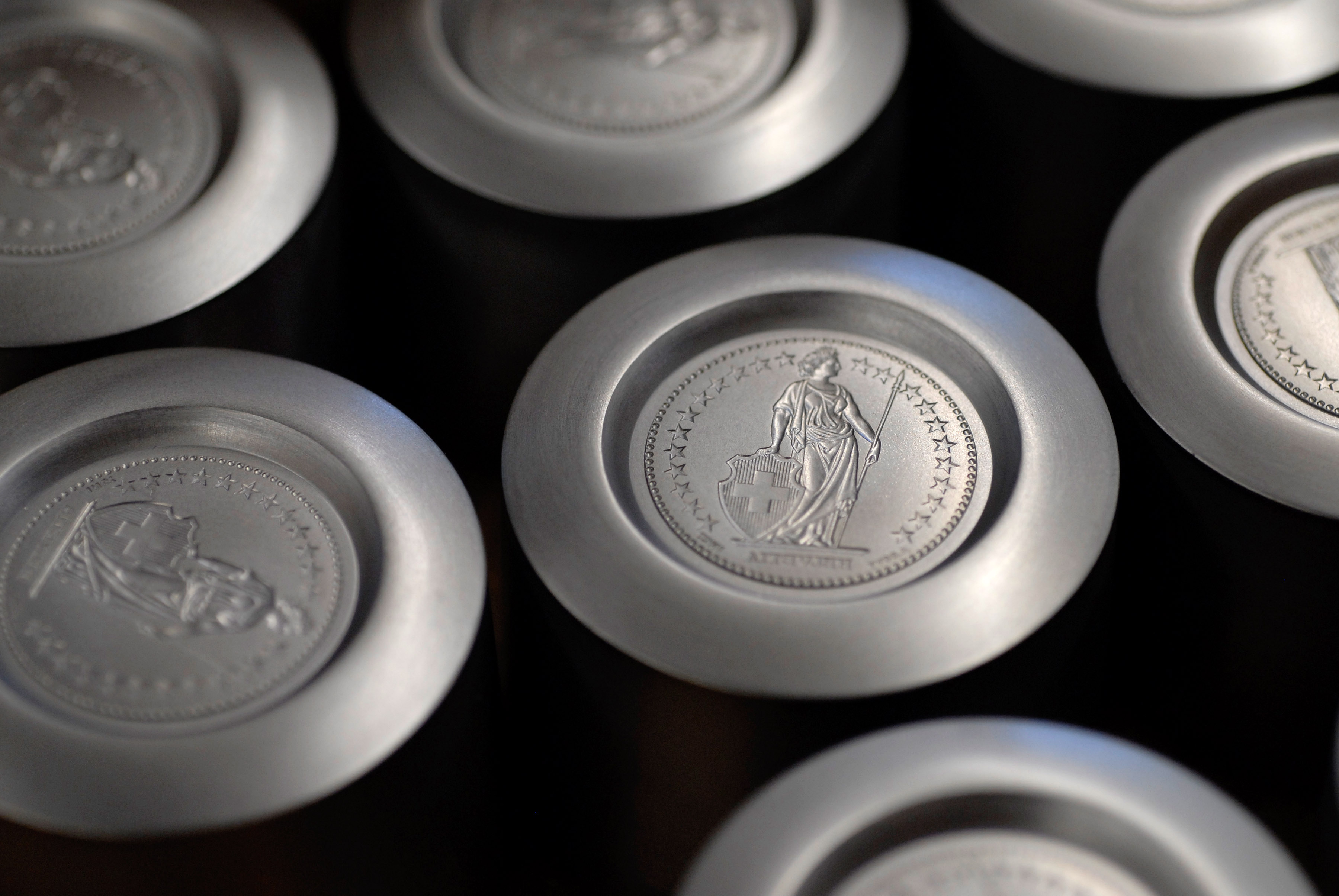
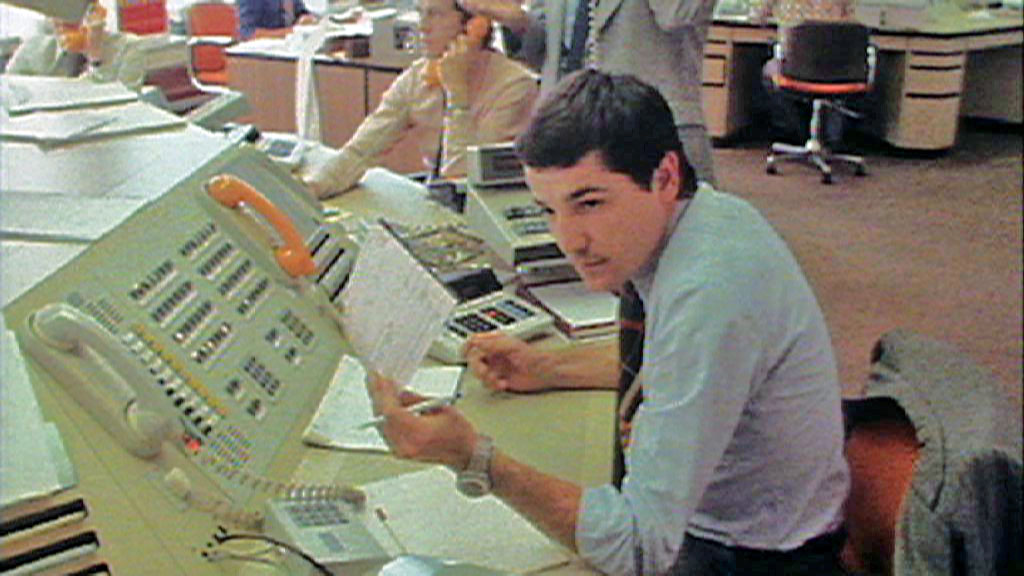
You can find an overview of ongoing debates with our journalists here. Please join us!
If you want to start a conversation about a topic raised in this article or want to report factual errors, email us at english@swissinfo.ch.